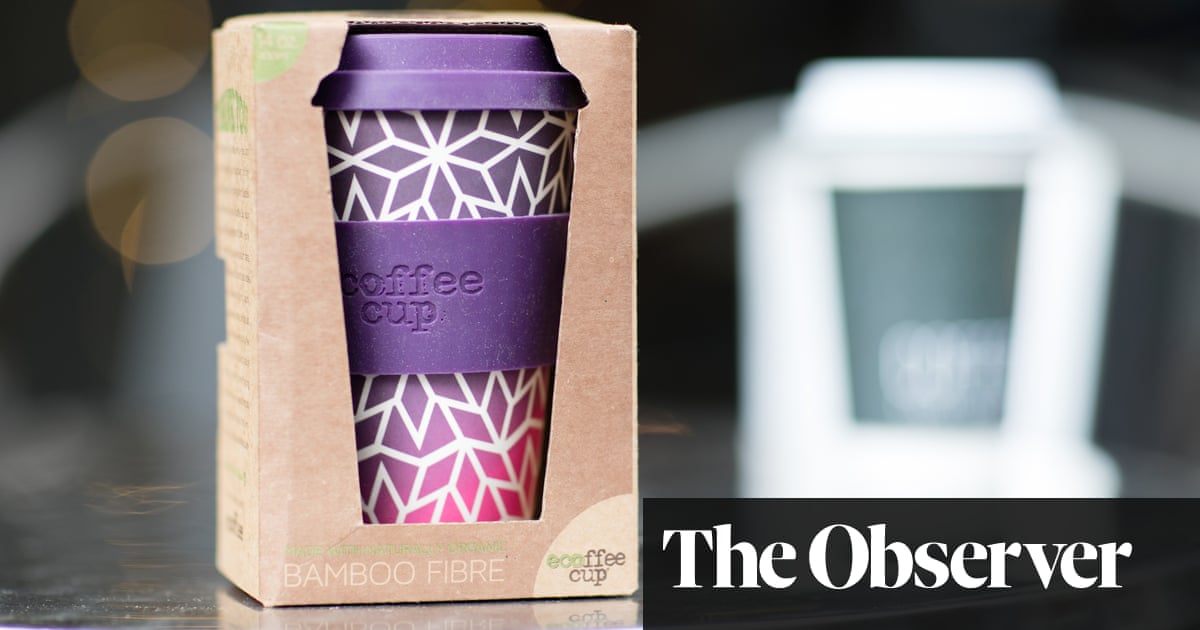
Charities and retailers are selling “eco-friendly” bamboo cups and children’s tableware containing plastic resin – despite warnings that green claims may be misleading and the products may pose a risk to health.
The bamboo “eco-cups” are promoted as helping to protect the planet, but are usually non-recyclable. Regulators warn the green claims may be tricking consumers into using products they believe to be sustainable.
There are also concerns the products may allow the accelerated degradation of plastic that can contaminate the food or drink and may be a risk to health. The Food Standards Agency (FSA) said it had advised retailers to withdraw products in June and any further sales would be unlawful.
Despite the ban, the bamboo and plastic products are still widely available online, including children’s cups and plates. They are typically made of bamboo, with a melamine formaldehyde resin, and look like plastic.
WWF-UK, the wildlife charity, was last week selling a reusable bamboo cup for £7.50, which it says “helps protect our planet”. It stated on its website: “Our organically sourced bamboo fibre cup is farmed with minimal impact on the environment.” The cup with a panda design contains 20% melamine. WWF-UK advises shoppers to check with councils on where it may be recycled.
WWF-UK said disposable cups had a negative impact on the environment and tests had shown its bamboo cups were safe for the consumer. But after it was approached by the Observer it removed the cup from sale.
Another charity, the Wild Planet Trust, which runs Paignton zoo in Devon and Newquay zoo in Cornwall, sells a Tiger travel mug for £8.99, made of bamboo, corn powder and melamine. The trust said this weekend it was investigating the product, which it had removed from sale.
Several online retailers continue to sell children’s bamboo and melamine tableware. The online marketplace Etsy was last week selling a Roarsome dinosaur tableware set for £12 and a bamboo tableware set decorated with tractors and fire engines also for £12. The online retailer did not respond to a request for comment.
Another retailer, Caroline Gardner, was last week selling a scattered spot “eco” travel bamboo mug for £6.25, with 25% melamine. Caroline Gardner said it had “swiftly moved away from bamboo cups” last year when it understood the implications and a few remaining mugs were mistakenly put on sale. These have now been removed and would be destroyed, said the firm.
Amazon does not permit its retailers to sell any bamboo and melamine cups or tableware products. The online giant said it had taken the decision to prohibit the sales about two years ago. Tableware made from 100% bamboo or 100% melamine is permitted for sale under EU regulations that still apply in the UK involving products used for food.
Concerns were raised about bamboo products mixed with plastic in November 2019 after tests conducted by the German Federal Institute for Risk Assessment, which warned melamine and formaldehyde could be released from “bambooware” products when filled with hot liquids like tea, coffee or baby formula. It said formaldehyde release from some cups would exceed the tolerable daily intake by 30 times for adults and 120 times for small children. There is no acute health risk from these bambooware products but repeated exposure to elevated levels of melamine and formaldehyde may be a risk to health, with melamine linked to toxic effects in the kidneys.
Last November the European Commission warned that tableware containing bamboo and other unauthorised additives had not been safely assessed under the regulations and their sale was illegal.
In the UK, the FSA said in June that the Committee on Toxicity, an independent scientific advisory body, had concluded the migration of formaldehyde and melamine from bamboo composite cups is a potential concern to human health and a more comprehensive risk assessment should be undertaken.
Some suppliers have already conducted their own tests, which they say show their products do not pose any health risk. The FSA is now consulting on the products and is requesting manufacturers, suppliers and retailers to submit any relevant data.
The FSA said: “Any person placing these products on the market could be committing an offence, as these products contain unauthorised additives. The FSA has taken steps to bring the market back into compliance, similar to steps undertaken in the EU.
“Businesses selling these items are reminded that plastic food contact articles containing unauthorised plant-based additives such as bamboo powder should be withdrawn from the market with immediate effect.”












